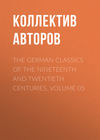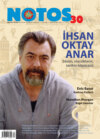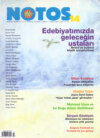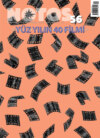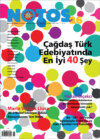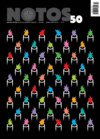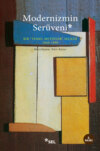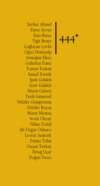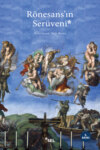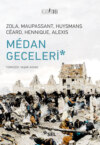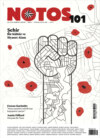Kitabı oku: «The German Classics of the Nineteenth and Twentieth Centuries, Volume 05», sayfa 27
CHAPTER IX
I sat there without shadow and without money, but a heavy weight was taken from my bosom. I was calm. Had I not also lost my love, or had I in that loss felt myself free from blame, I believe that I should have been happy; but I knew not what I should do. I examined my pockets; I found yet several gold pieces there; I counted them and laughed. I had my horses below at the inn; I was ashamed of returning thither; I must, at least, wait till the sun was gone down; it stood yet high in the heavens. I laid myself down in the shade of the nearest trees, and calmly fell asleep.
Lovely shapes blended themselves before me in charming dance into a pleasing dream. Mina with a flower-wreath in her hair floated by me, and smiled kindly upon me. The noble Bendel also was crowned with flowers, and went past with a friendly greeting. I saw many besides, and I believe thee too, Chamisso, in the distant throng. A bright light appeared, but no one had a shadow, and, what was stranger, it had by no means a bad effect. Flowers and songs, love and joy, under groves of palm! I could neither hold fast nor interpret the moving, lightly floating, lovable forms; but I knew that I dreamed such a dream with joy, and was careful to avoid waking. I was already awake, but still kept my eyes closed in order to retain the fading apparition longer before my soul.
I finally opened my eyes; the sun stood still high in the heavens, but in the east; I had slept through the night. I took it for a sign that I should not return to the inn. I gave up readily as lost what I yet possessed there, and determined to strike on foot into a branch road, which led along the wood-grown feet of the mountains, leaving it to fate to fulfil what it had yet in store for me. I looked not behind me, and thought not even of applying to Bendel, whom I left rich behind me, and which I could readily have done. I considered the new character which I should support in the world. My dress was very modest. I had on an old black polonaise, which I had already worn in Berlin, and which, I know not how, had first come again into my hands for this journey. I had also a traveling cap on my head, a pair of old boots on my feet. I arose, and cut me on the spot a knotty stick as a memorial, and pursued my wandering.
I met in the wood an old peasant who, friendly, greeted me, and with whom I entered into conversation. I inquired, like an inquisitive traveler, first the way, then about the country and its inhabitants, the productions of the mountains, and many such things. He answered my questions sensibly and loquaciously. We came to the bed of a mountain torrent, which had spread its devastations over a wide tract of the forest. I shuddered involuntarily at the sun-bright space, and allowed the countryman to go first; but in the midst of this dangerous spot, he stood still, and turned to relate to me the history of this desolation. He saw immediately my defect, and paused in the midst of his discourse.
"But how does that happen—the gentleman has actually no shadow!"
"Alas! alas!" replied I, sighing, "during a long and severe illness, my hair, nails, and shadow fell off. See, father, at my age, my hair, which is renewed again, is quite white, the nails very short, and the shadow—that will not grow again."
"Ay! ay!" responded the old man, shaking his head—"no shadow, that is bad! That was a bad illness that the gentleman had." But he did not continue his narrative, and at the next cross-way which presented itself left me without saying a word. Bitter tears trembled anew upon my cheeks, and my cheerfulness was gone.
I pursued my way with a sorrowful heart, and sought no further the society of men. I kept myself in the darkest wood, and was many a time compelled, in order to pass over a space where the sun shone, to wait for whole hours, lest some human eye should forbid me the transit. In the evening I sought shelter in the villages. I went particularly in quest of a mine in the mountains where I hoped to get work under the earth; since, besides that my present situation made it imperative that I should provide for my support, I had discovered that the most active labor alone could protect me from my own annihilating thoughts.
A few rainy days advanced me well on the way, but at the expense of my boots, whose soles had been calculated for Count Peter, and not for the pedestrian laborer. I was already barefoot and had to procure a pair of new boots. The next morning I transacted this business with much gravity in a village where a wake was being held, and where in a booth old and new boots were sold. I selected and bargained long. I was forced to deny myself a new pair, which I would gladly have had, for the extravagant price frightened me. I therefore contented myself with an old pair, which were yet good and strong, and which the handsome, blond-haired boy who kept the stall, for present cash payment handed to me with a friendly smile and wished me good luck on my journey. I put them on at once, and left the place by the northern gate.
I was deeply absorbed in my thoughts and scarcely saw where I set my feet, for I was pondering on the mine which I hoped to reach by evening, and where I hardly knew how I should introduce myself. I had not advanced two hundred strides when I observed that I had gone out of the way. I therefore looked round me, and found myself in a wild and ancient forest, where the axe appeared never to have been wielded. I still pressed forward a few steps, and beheld myself in the midst of desert rocks which were overgrown only with moss and lichens, and between which lay fields of snow and ice. The air was intensely cold; I looked round—the wood had vanished behind me. I took a few strides more—and around me reigned the silence of death; the ice whereon I stood boundlessly extended itself, and on it rested a thick, heavy fog. The sun stood blood-red on the edge of the horizon. The cold was insupportable.
I knew not what had happened to me. The benumbing frost compelled me to hasten my steps; I heard only the roar of distant waters; a step, and I was on the icy margin of an ocean. Innumerable herds of seals plunged rushing before me in the flood. I pursued this shore; I saw naked rocks, land, birch and pine forests; I now advanced for a few minutes right onward. It became stifling hot. I looked around—I stood amongst beautifully cultivated rice-fields, and beneath mulberry-trees. I seated myself in their shade; I looked at my watch; I had left the market town only a quarter of an hour before. I fancied that I dreamed; I bit my tongue to awake myself, but I was really awake. I closed my eyes in order to collect my thoughts. I heard before me singular accents pronounced through the nose. I looked up. Two Chinese, unmistakable from their Asiatic physiognomy, if indeed I would have given no credit to their costume, addressed me in their speech with the accustomed salutations of their country. I arose and stepped two paces backward; I saw them no more. The landscape was totally changed—trees and forests instead of rice-fields. I contemplated these trees and the plants which bloomed around me, which I recognized as the growth of southeastern Asia. I wished to approach one of these trees—one step, and again all was changed. I marched now like a recruit who is drilled, and strode slowly and with measured steps. Wonderfully diversified lands, rivers, meadows, mountain chains, steppes, deserts of sand, unrolled themselves before my astonished eyes. There was no doubt of it—I had seven-league boots on my feet.
CHAPTER X
I fell in speechless adoration on my knees and shed tears of thankfulness, for suddenly my future stood clear before my soul. For early offense thrust out from the society of men, I was cast, for compensation, upon Nature, which I ever loved; the earth was given me as a rich garden, study for the object and strength of my life, and science for its goal. It was no resolution which I adopted. I only have since, with severe, unremitted diligence, striven faithfully to represent what then stood clear and perfect before my eye, and my satisfaction has depended on the agreement of the representation with the original.
I roused myself in order, without delay, and with a hasty survey, to take possession of the field where I should hereafter reap. I stood on the heights of Tibet, and the sun, which had risen upon me only a few hours before, now already stooped to the evening sky. I wandered over Asia from east to west, overtaking him in his course, and entered Africa. I gazed about me with eager curiosity, as I repeatedly traversed it in all directions. As I surveyed the ancient pyramids and temples in passing through Egypt, I descried in the desert not far from hundred-gated Thebes, the caves where the Christian anchorites once dwelt. It was suddenly firm and clear in me—here is thy home! I selected one of the most concealed which was at the same time spacious, convenient, and inaccessible to the jackals, for my future abode, and again went forward.
I passed, at the pillars of Hercules, over to Europe, and when I reviewed the southern and northern provinces, I crossed from northern Asia over the polar glaciers to Greenland and America, traversed both parts of that continent, and the winter which already reigned in the south drove me speedily back northward from Cape Horn.
I tarried awhile till it was day in eastern Asia, and, after some repose, continued my wandering. I traced through both Americas the mountain chain which constitutes the highest known acclivities on our globe. I stalked slowly and cautiously from summit to summit, now over flaming volcanoes, now snow-crowned peaks, often breathing with difficulty, when, reaching Mount Saint Elias, I sprang across Behring's Straits to Asia. I followed the western shores in their manifold windings, and examined with especial care to ascertain which of the islands were accessible to me. From the peninsula of Malacca my boots carried me to Sumatra, Java, Bali and Lamboc. I attempted often with danger, and always in vain, a northwest passage over the lesser islet and rocks with which this sea is studded, to Borneo and the other islands of this Archipelago. I was compelled to abandon the hope. At length I seated myself on the extreme portion of Lamboc, and gazing toward the south and east, wept, as at the fast closed bars of my prison, that I had so soon discovered my limits. New Holland so extraordinary and so essentially necessary to the comprehension of the earth and its sun-woven garment, the vegetable and the animal world, with the South Sea and its Zoophyte islands, was interdicted to me, and thus, at the very outset, all that I should gather and build up was destined to remain a mere fragment! Oh, my Adelbert, what, after all, are the endeavors of men!
Often did I in the severest winter of the southern hemisphere, endeavor, passing the polar glaciers westward, to leave behind me those two hundred strides out from Cape Horn, which sundered me probably from Van Diemen's Land and New Holland, regardless of my return or whether this dismal region should close upon me as my coffin-lid—making desperate leaps from ice-drift to ice-drift, and bidding defiance to the cold and the sea. In vain! I never reached New Holland, but, every time, I came back to Lamboc, seated myself on its farthest peak, and wept again, with my face turned toward the south and east, as at the fast closed bars of my prison.
I tore myself at length from this spot, and returned with a sorrowful heart into inner Asia. I traversed that farther, pursuing the morning dawn westward, and came, yet in the night, to my proposed home in the Thebais, which I had touched upon in the afternoon of the day before.
As soon as I was somewhat rested, and when it was day again in Europe, I made it my first care to procure everything which I wanted. First of all, stop-shoes; for I had experienced how inconvenient it was when I wished to examine near objects, not to be able to slacken my stride except by pulling off my boots. A pair of slippers drawn over them had completely the effect which I anticipated, and later I always carried two pairs, since I sometimes threw them from my feet, without having time to pick them up again, when lions, men, or hyenas startled me from my botanizing. My very excellent watch was, for the short duration of my passage, a capital chronometer. Besides this I needed a sextant, some scientific instruments, and books.
To procure all this, I made several anxious journeys to London and Paris, which, auspiciously for me, a mist just then overshadowed. As the remains of my enchanted gold was now exhausted, I easily accomplished the payment by gathering African ivory, in which, however, I was obliged to select only the smallest tusks, as not too heavy for me. I was soon furnished and equipped with all these, and commenced immediately, as private philosopher, my new course of life.
I roamed about the earth, now determining the altitudes of mountains; now the temperature of its springs and the air; now contemplating the animal, now inquiring into the vegetable tribes. I hastened from the equator to the pole, from one world to the other, comparing facts with facts. The eggs of the African ostrich or the northern sea-fowl, and fruits, especially of the tropical palms and bananas, were even my ordinary food. In lieu of happiness I had tobacco, and of human society and the ties of love, one faithful poodle, which guarded my cave in the Thebais, and, when I returned home with fresh treasures, sprang joyfully toward me and gave me still a human feeling that I was not alone on the earth. An adventure was yet destined to conduct me back amongst mankind.
CHAPTER XI
As I once scotched my boots on the shores of the north and gathered lichens and sea-weed, an ice-bear came unawares upon me round the corner of a rock. Flinging off my slippers, I would step over to an opposite island, to which a naked crag which protruded midway from the waves offered me a passage. I stepped with one foot firmly on the rock, and plunged over on the other side into the sea, one of my slippers having unobserved remained fast on the foot.
The excessive cold seized on me; I with difficulty rescued my life from this danger; and the moment I reached land, I ran with the utmost speed to the Lybyan desert in order to dry myself in the sun, but, as I was here exposed, it burned me so furiously on the head that I staggered back again very ill toward the north. I sought to relieve myself by rapid motion, and ran with swift, uncertain steps, from west to east, from east to west. I found myself now in the day, now in the night; now in summer, now in the winter's cold.
I know not how long I thus reeled about on the earth. A burning fever glowed in my veins; with deepest distress I felt my senses forsaking me. As mischief would have it, in my incautious career, I now trod on some one's foot; I must have hurt him; I received a heavy blow, and fell to the ground.
When I again returned to consciousness, I lay comfortably in a good bed, which stood amongst many other beds in a handsome hall. Some one sat at my head; people went through the hall from one bed to another. They came to mine, and spoke together about me. They styled me Number Twelve; and on the wall at my feet stood—yes, certainly it was no delusion, I could distinctly read on a black tablet of marble in great golden letters, quite correctly written, my name—
PETER SCHLEMIHL
On the tablet beneath my name were two other rows of letters, but I was too weak to put them together. I again closed my eyes.
I heard something of which the subject was Peter Schlemihl read aloud, and articulately, but I could not collect the sense. I saw a friendly man, and a very lovely woman in black dress appear at my bedside. The forms were not strange to me, and yet I could not recognize them.
Some time went on, and I recovered my strength. I was called Number Twelve; and Number Twelve, on account of his long beard, passed for a Jew, on which account, however, he was not at all the less carefully treated. That he had no shadow appeared to have been unobserved. My boots, as I was assured, were, with all that I had brought hither, in good keeping, in order to be restored to me on my recovery. The place in which I lay was called the SCHLEMIHLIUM. What was daily read aloud concerning Peter Schlemihl was an exhortation to pray for him as the Founder and Benefactor of this institution. The friendly man whom I had seen by my bed was Bendel; the lovely woman was Mina.
I recovered unrecognized in the Schlemihlium; and learned yet further that I was in Bendel's native city, where, with the remains of my otherwise unblessed gold, he had in my name founded this Hospital, where the unhappy blessed me, and himself maintained its superintendence. Mina was a widow. An unhappy criminal process had cost Mr. Rascal his life, and her the greater part of her property. Her parents were no more. She lived here as a pious widow, and practised works of mercy.
Once she conversed with Mr. Bendel at the bedside of Number Twelve. "Why, noble lady, will you so often expose yourself to the bad atmosphere which prevails here? Does fate then deal so hardly with you that you wish to die?"
"No, Mr. Bendel, since I have dreamed out my long dream, and have awoke in myself, all is well with me; since then I crave not, and fear not, death. Since then, I reflect calmly on the past and the future. Is it not also with a still inward happiness that you now, in so devout a manner, serve your master and friend?"
"Thank God, yes, noble lady. But we have seen wonderful things; we have unwarily drunk much good, and bitter woes, out of the full cup. Now it is empty, and we may believe that the whole has been only a trial, and, armed with wise discernment, awaits the real beginning. The real beginning is of another fashion; and we wish not back the first jugglery, and are on the whole glad, such as it was, to have lived through it. I feel also within me a confidence that it must now be better than formerly with our old friend."
"Within me too," replied the lovely widow, and then passed on.
The conversation left a deep impression upon me, but I was undecided in myself whether I should make myself known or depart hence unrecognized. I took my resolve. I requested paper and pencil, and wrote these words—"It is indeed better with your old friend now than formerly, and if he does penance it is the penance of reconciliation."
Hereupon I desired to dress myself, as I found myself stronger. The key of the small wardrobe which stood near my bed was brought, and I found therein all that belonged to me. I put on my clothes, suspended my botanical case, in which I rejoiced still to find my northern lichens, round my black polonaise, drew on my boots, laid the written paper on my bed, and, as the door opened, I was already far on the way to the Thebais.
As I took the way along the Syrian coast, on which I for the last time had wandered from home, I perceived my poor Figaro coming toward me. This excellent poodle, which had long expected his master at home, seemed to desire to trace him out. I stood still and called to him. He sprang barking toward me, with a thousand moving assurances of his inmost and most extravagant joy. I took him up under my arm, for in truth he could not follow me, and brought him with me home again.
I found all in its old order, and returned gradually, as my strength was recruited, to my former employment and mode of life, except that I kept myself for a whole year out of the, to me, wholly insupportable polar cold. And thus, my dear Chamisso, I live to this day. My boots are no worse for the wear, as that very learned work of the celebrated Tieckius, De Rebus Gestis Pollicilli, at first led me to fear. Their force remains unimpaired, my strength only decays; yet I have the comfort to have exerted it in a continuous and not fruitless pursuit of one object. I have, so far as my boots could carry me, become more fundamentally acquainted than any man before me with the earth, its shape, its elevations, its temperatures, the changes of its atmosphere, the exhibitions of its magnetic power, and the life upon it, especially in the vegetable world. The facts I have recorded with the greatest possible exactness and in perspicuous order in several works, and stated my deductions and views briefly in several treatises. I have settled the geography of the interior of Africa, and of the northern polar regions; of the interior of Asia, and its eastern shores. My Historia Stirpium Plantarum Utriusque Orbis stands as a grand fragment of the Flora Universalis Terrae, and as a branch of my Systema Naturae. I believe that I have therein not merely augmented, at a moderate calculation, the amount of known species, more than one-third, but have done something for the Natural System, and for the Geography of Plants. I shall labor diligently at my Fauna. I shall take care that, before my death, my works shall be deposited in the Berlin University.
And thee, my dear Chamisso, have I selected as the preserver of my singular history, which, perhaps, when I have vanished from the earth, may afford valuable instruction to many of its inhabitants. But thou, my friend, if thou wilt live among men, learn before all things to reverence the shadow, and then the gold. Wishest thou to live only for thyself and for thy better self—oh, then!—thou needest no counsel.
